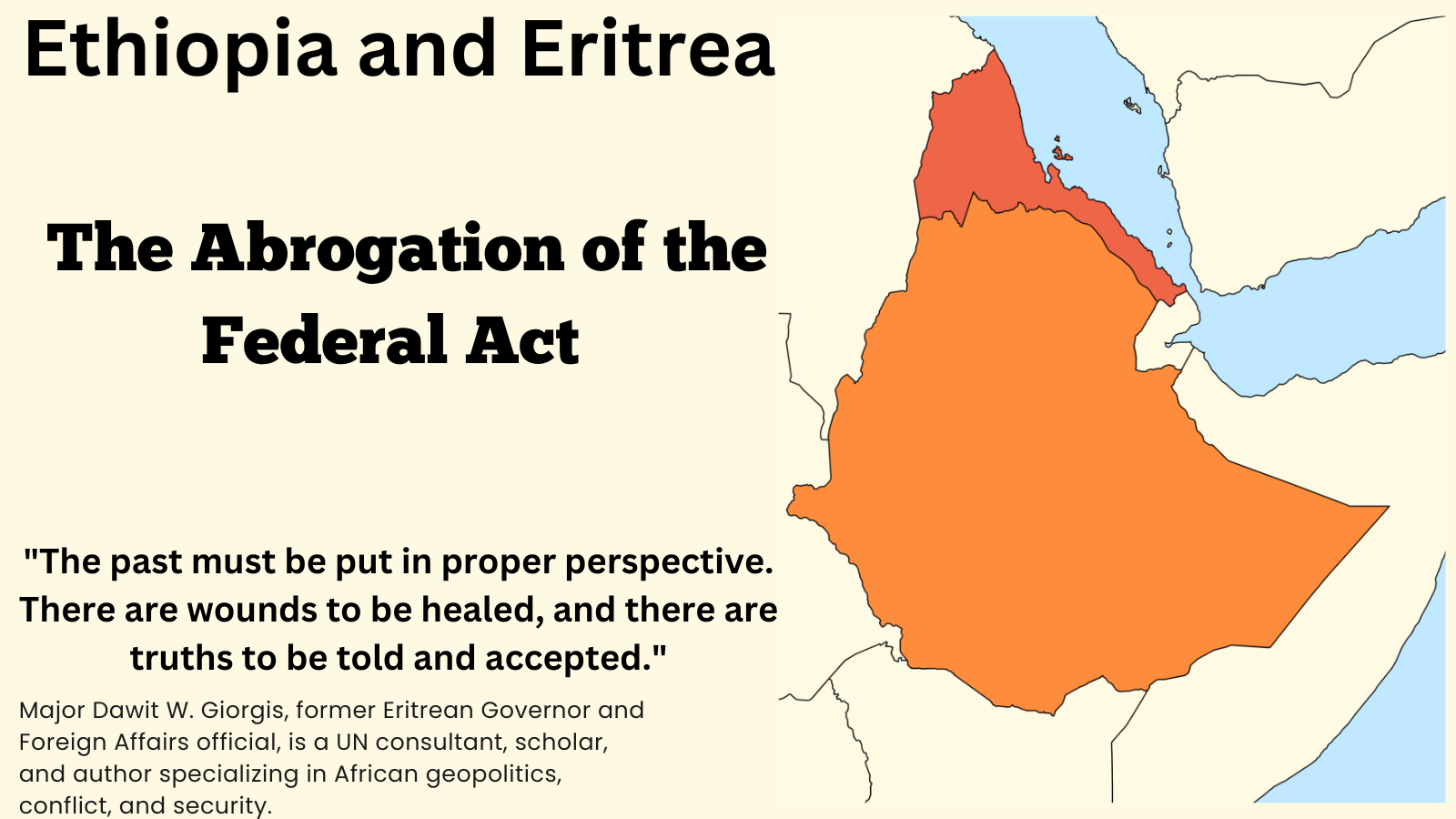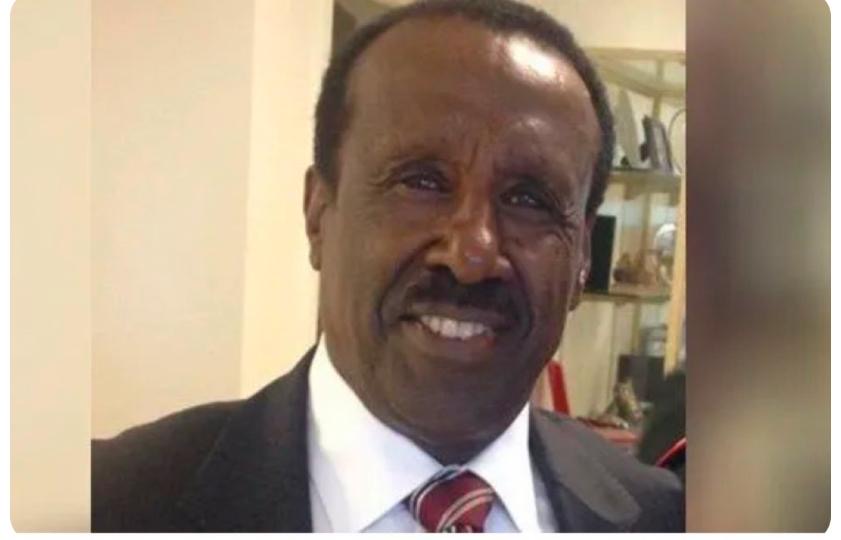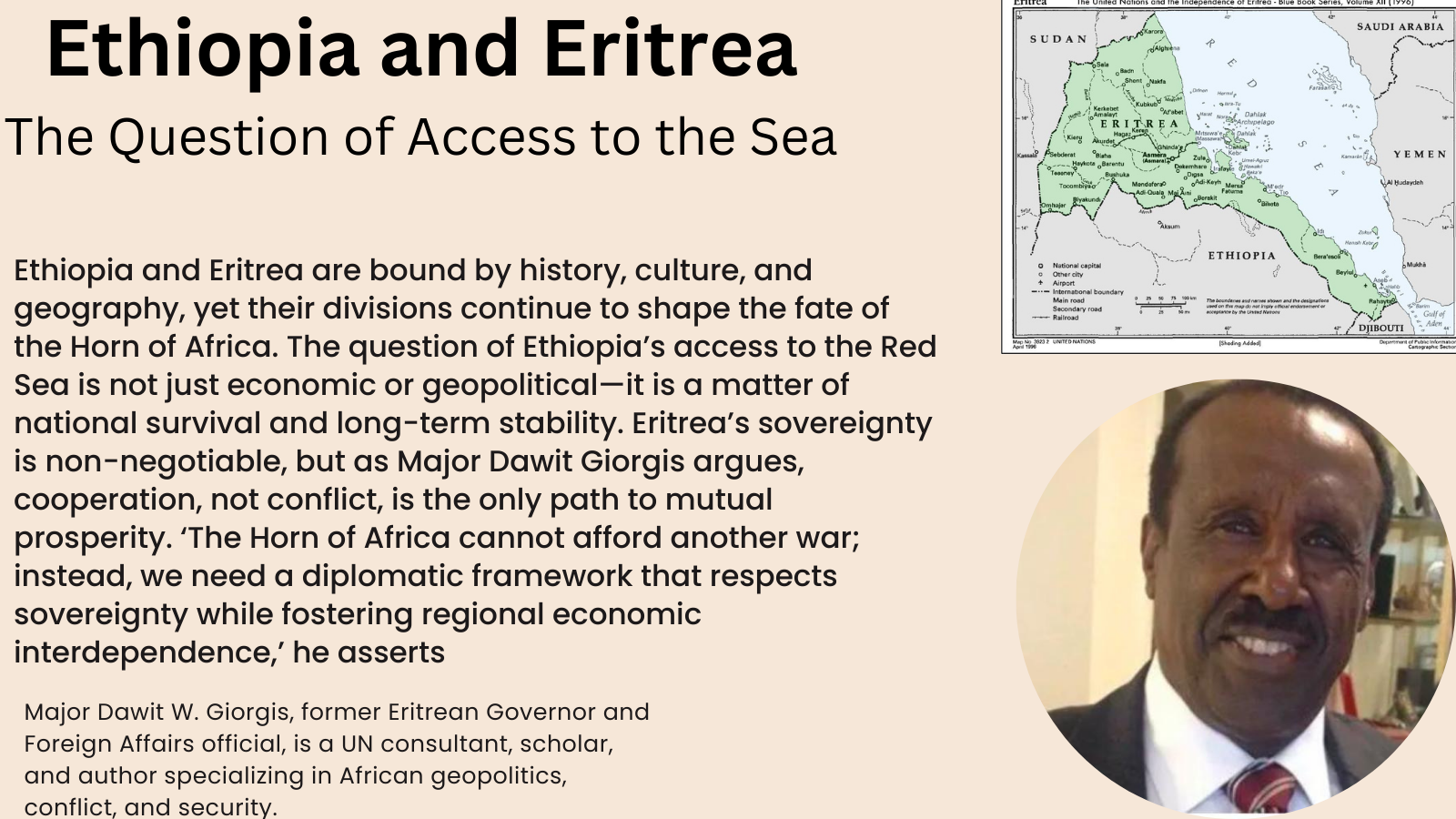News Analysis: Ethiopia’s Role in Sudanese Mediation Raises Questions of Neutrality and Regional Stability
Abiy Ahmed Mediates Between Sudan's Burhan, RSF's Hemeti, and UAE's Bin Zayed
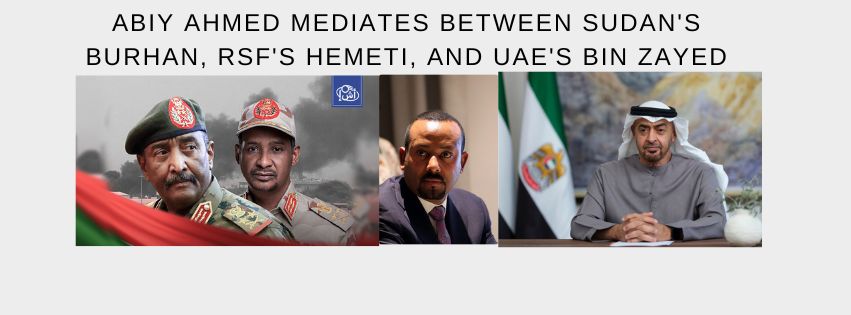
Middle East Eye recently reported on a significant diplomatic development where Ethiopian Prime Minister Abiy Ahmed facilitated a phone call between Sudanese army chief Abdel Fattah al-Burhan and United Arab Emirates (UAE) President Mohammed Bin Zayed. This mediation effort, occurring amidst accusations from the Sudanese army that the UAE has been arming and funding the Rapid Support Forces (RSF), brings into question the impartiality of Ethiopia in the ongoing Sudanese conflict.
Abiy Ahmed’s Mediation Amidst Economic Ties
Prime Minister Abiy Ahmed’s involvement in arranging the call follows his visit to Port Sudan and coincides with a substantial $817 million currency swap agreement between the UAE Central Bank and the National Bank of Ethiopia. This timing raises concerns about the neutrality of Abiy’s mediation efforts, suggesting potential economic motivations behind Ethiopia’s diplomatic actions.

The phone call, the first between Burhan and Mohammed Bin Zayed since June 2023, aimed to ease tensions that have escalated due to Sudanese accusations against the UAE at the UN Security Council. These allegations assert that the UAE has been supplying weapons to the RSF, a paramilitary group engaged in a violent conflict with the Sudanese Armed Forces (SAF) since April of last year.
Conflicting Narratives and Internal Divisions
The secrecy intended for the call was compromised when the Emirati state news agency WAM reported it, resulting in conflicting narratives from Sudan and the UAE about the call’s content and initiation. The Sudanese Sovereignty Council emphasized Burhan’s accusations against the UAE, while Emirati sources framed the call as a commitment to peace and stability in Sudan.

Internal divisions within the SAF regarding the UAE’s role have also surfaced. Yasser al-Atta, a senior SAF commander, has openly criticized Mohammed bin Zayed, alleging that the UAE supports the RSF. This discord within the SAF complicates Sudan’s stance and highlights the ongoing distrust between the involved parties.
Regional Implications and Ethiopia’s Strategic Concerns
The mediation effort must be viewed within the broader regional context, particularly concerning Ethiopia’s strategic interests. The RSF’s offensive near Sudan’s border with Ethiopia, which has displaced over 125,000 refugees, poses a direct threat to Ethiopian stability. The potential for the RSF to cooperate with Amhara resistance group, known as FANO, who are currently in war with the Ethiopian government, is particularly alarming for Ethiopian officials.
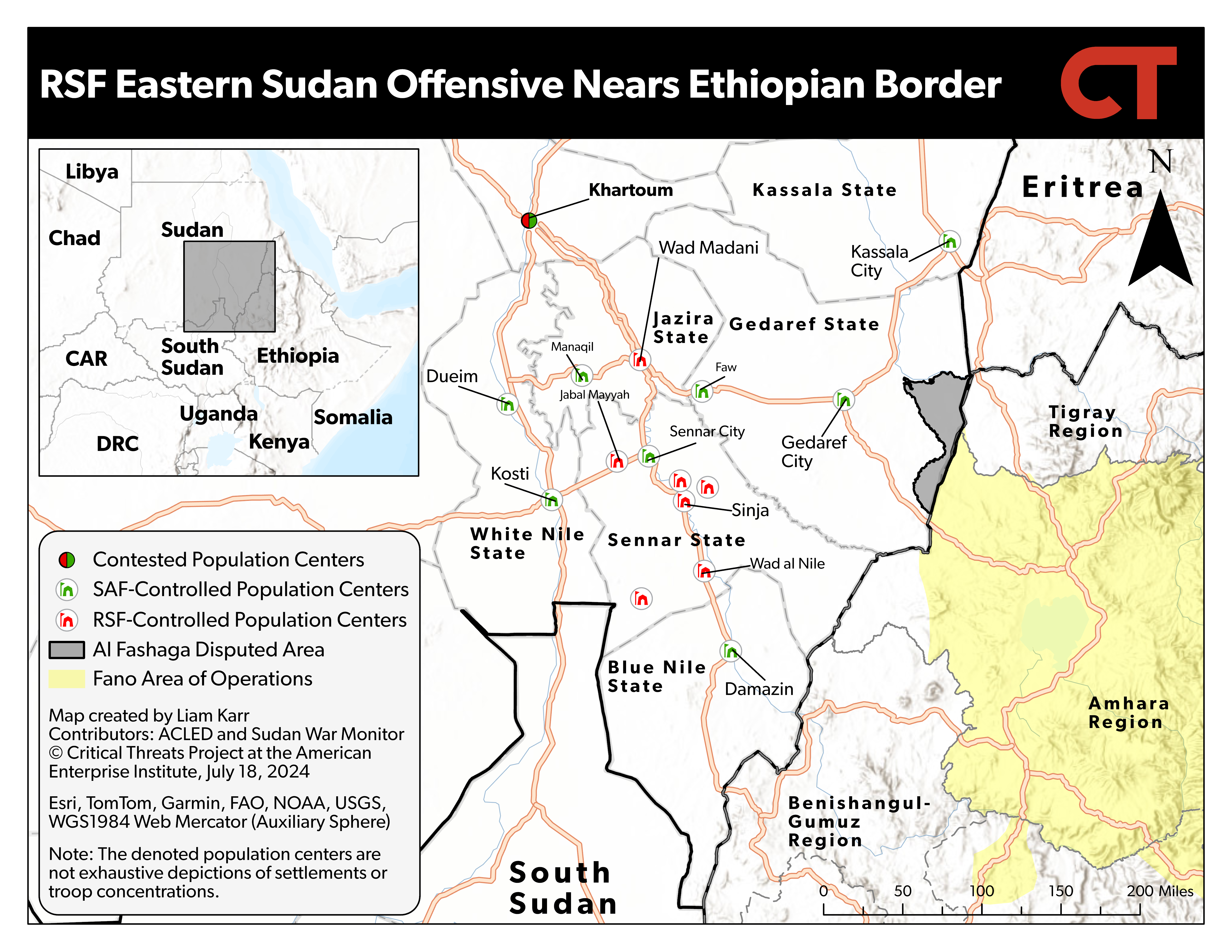
Amhara FANO, representing one of Ethiopia’s largest ethnic groups, historically fought alongside the government during the North Ethiopia War but now operates as a resistance group fueled by longstanding grievances. These include centuries-old hatred, enmity, demonization, and atrocities—such as genocide, crimes against humanity, and war crimes—perpetrated against the Amhara people by the Ethiopian government. The RSF’s growing presence on the Ethiopian border could create opportunities for cooperation between these two groups, further destabilizing the region.
The Role of Amhara FANO and Border Tensions
The Amhara FANO, driven by a sense of persecution and marginalization, have pressured Prime Minister Abiy to respond both diplomatically and militarily to Sudan to protect Amhara territory. The RSF’s allegations of Tigrayan militants fighting alongside the SAF in Sudan add another layer of complexity.
Greater insecurity near the Ethiopian border benefits Amhara FANO, even without a formal alliance with the SAF. The influx of weapons and ongoing conflict risk increasing illicit weapon flows into Ethiopia, particularly in areas with Amhara FANO presence. This situation creates a volatile environment where Amhara FANO could exploit the instability for strategic gains, potentially using Sudan as a rear base, similar to how Tigrayan rebels previously operated.
Insight from Former Senior Economic Advisor for USAID and Senior Advisor at World Bank
To understand Ethiopia’s current foreign policy and its relationships with neighboring countries, it is essential to examine the intricate and often opaque ties between Ethiopian Prime Minister Abiy Ahmed and UAE leader Mohamed Bin Zayed. Their personal friendship has significantly influenced Ethiopia’s diplomatic and economic strategies.
In the past six years, the UAE has achieved its long-standing goal of accessing and controlling Ethiopia’s vast natural resources, including its rivers, fertile lands, and other key assets. This shift has had profound effects on Ethiopia’s political, social, and cultural landscape, potentially destabilizing its future.
Abiy Ahmed, the driving force behind these developments, has facilitated significant UAE investments and trade deals in Ethiopia, including the recent local currency swap. This has also affected Ethiopia’s diplomatic relations across the Horn of Africa, Eastern Africa, South Sudan, and Sudan.
The recent visit by Abiy Ahmed to Port Sudan, where he met with General Abdel Fattah Al-Burhan, might appear neutral at first glance. However, given the UAE’s vested interest in Sudanese land annexed from Ethiopia during the 2020-2022 northern war, Abiy’s mediation may not be as impartial as it seems.
Abiy’s mediation efforts could be more about addressing the internal threat posed by the Amhara Fano movement and preventing a scenario similar to the ongoing conflict in Sudan. Concerns about the Fano gaining access to weapons and logistics amidst the crisis have likely influenced Abiy’s actions.
Despite this, Abiy Ahmed has not addressed the annexation of Ethiopian lands by Sudan, raising questions about his stance on this issue. The lack of action on this front may imply tacit acceptance of the annexation, benefiting certain parties while disadvantaging others.
Abiy Ahmed’s approach to Ethiopia’s foreign policy should focus on resolving domestic issues rather than solely on external conflicts. Ethiopia remains less secure today than before Abiy’s tenure, with porous borders and ongoing land annexations.
A robust foreign policy for Ethiopia should involve acknowledging and addressing internal problems, restoring public confidence, and promoting stability and security. Effective mediation in regional conflicts must include all relevant governments, opposition parties, and civil society groups, avoiding foreign powers that exacerbate instability.
The ongoing efforts by various factions in Sudan to align with groups in Ethiopia, including Amhara Fano, suggest a need for strategic and tactical connections between these entities. The historical and cultural ties between the Amhara and Sudanese people could offer opportunities for long-term collaboration and stability.
Conclusion
The facilitation of dialogue between Burhan and Mohammed Bin Zayed by Ethiopian Prime Minister Abiy Ahmed highlights Ethiopia’s complex and potentially conflicted role in the Sudanese crisis. The intertwining of economic agreements and diplomatic interventions raises critical questions about Ethiopia’s neutrality and strategic motivations.
As the conflict continues to impact regional stability, the implications of Ethiopia’s actions will be closely scrutinized, with significant consequences for both Sudan and Ethiopia’s internal and border dynamics. The reflections from a former Senior Economic Advisor for USAID and Senior Advisor at the World Bank underscore the intricate ties and behind-the-scenes deals between Ethiopia and the UAE, which have far-reaching implications for Ethiopia’s sovereignty, territorial integrity, and security.

